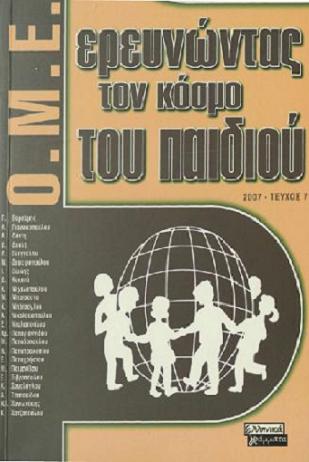Λεκτική επικοινωνία στη σχολική τάξη: η ερώτηση του μαθητή
Abstract
A substantial part of the verbal communication that occurs in a school classroom is occupied by the teachers' questions as well as the students' answers. It is almost a rule or a convention that the teacher asks and the student answers. The opposite occurs very rarely. The oxymoron lies at the fact that those who submit the questions -the teachers that is- are not looking for knowledge, whilst those who do search for knowledge -the students do not ask questions (Dillon 1988). The current study aims at pointing out the importance and the usefulness of the students' questions for the improvement of the quality of learning. To this direction, the current study investigates the reasons that students don't submit questions, and the presuppositions and the strategies from the side of the teacher that are needed for increasing and facilitating students' questions. Finally this study examines the role that the students' questions can play for the realistic goal of revising and improving traditional teaching methods.
Article Details
- How to Cite
-
Χανιωτάκης (Nikolaos Chaniotakis) Ν. (2007). Λεκτική επικοινωνία στη σχολική τάξη: η ερώτηση του μαθητή. Investigating the child’s World, 7, 206–225. https://doi.org/10.12681/icw.18232
- Issue
- Vol. 7 (2007)
- Section
- Scientific articles & educational projects

This work is licensed under a Creative Commons Attribution-NonCommercial 4.0 International License.
Authors who publish with this journal agree to the following terms:
· Authors retain copyright and grant the journal right of first publication with the work simultaneously licensed under a Creative Commons Attribution Non-Commercial License that allows others to share the work with an acknowledgement of the work's authorship and initial publication in this journal.
· Authors are able to enter into separate, additional contractual arrangements for the non-exclusive distribution of the journal's published version of the work (e.g. post it to an institutional repository or publish it in a book), with an acknowledgement of its initial publication in this journal.
· Authors are permitted and encouraged to post their work online (preferably in institutional repositories or on their website) prior to and during the submission process, as it can lead to productive exchanges, as well as earlier and greater citation of published work.



